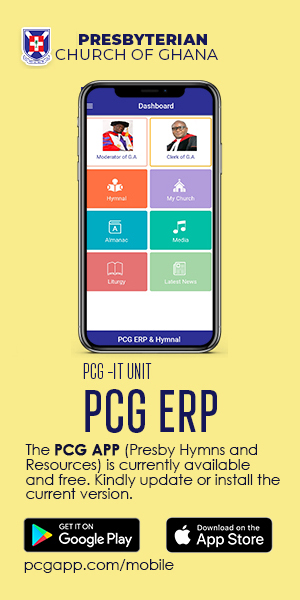History of Ecumenism in PCG
The Presbyterian Church of Ghana’s partnership in Mission (ecumenism) traces its origin to the early missionary work of the Basel Missionary Society, and later to the United Free Church of Scotland. The Mission Boards pursued their evangelization and expansion programs through religious and secular education and evangelistic campaigns. Given the philosophy of missions at the time, their endeavours included the building of churches, schools and hospitals.
In 1950, when the PCG became fully self-governing, the relationship was described as a “mother-daughter relationship”. This means that the Basel Mission Society and the United Free Church on the one hand and the Presbyterian Church of Ghana (PCG) on the other hand formed a trusting relationship to share complementary strengths and resources to reach mutual goals.
In 1956 the Presbyterian Church of Ghana established relations with many other churches in Europe. All along, the relationships had been between the Basel Mission Society (BMS) and the Church of Scotland (COS). Relationships were also established between the Netherlands Reformed Church and the United Reformed Church, UK.
Later on in the century, the world ecumenical bodies such as the World Council of Churches (WCC), the World Alliance of Reformed Churches (WARC), and the All Africa Council of Churches (AACC) recognized the PCG as a member in the ecumenical system. In 1960 the PCG established the Inter-Church and Ecumenical Relations Desk.
The functions are as stated below:
- To advise the General Assembly Council on policy matters affecting the relations of the Church with local and international and local ecumenical bodies, such as the World Council of Churches (WCC), the World Communion of Reformed Churches (WCRC), the All-Africa Conference of Churches (AACC), The Christian Council of Ghana (CCG), the Catholic Bishops’ Conference, Ghana Pentecostal Council, and other recognized Christian bodies;
- Resource and facilitate the direct partnership relationships between Presbyteries and overseas churches and institutions;
- Maintain close contact with the Inter-faith/Inter-Church committee of CCG and advise the Church on its relations with people of other faiths;
- Organize programs/for on issues of local and international ecumenical interest.


Feature One

Feature Two

